
History

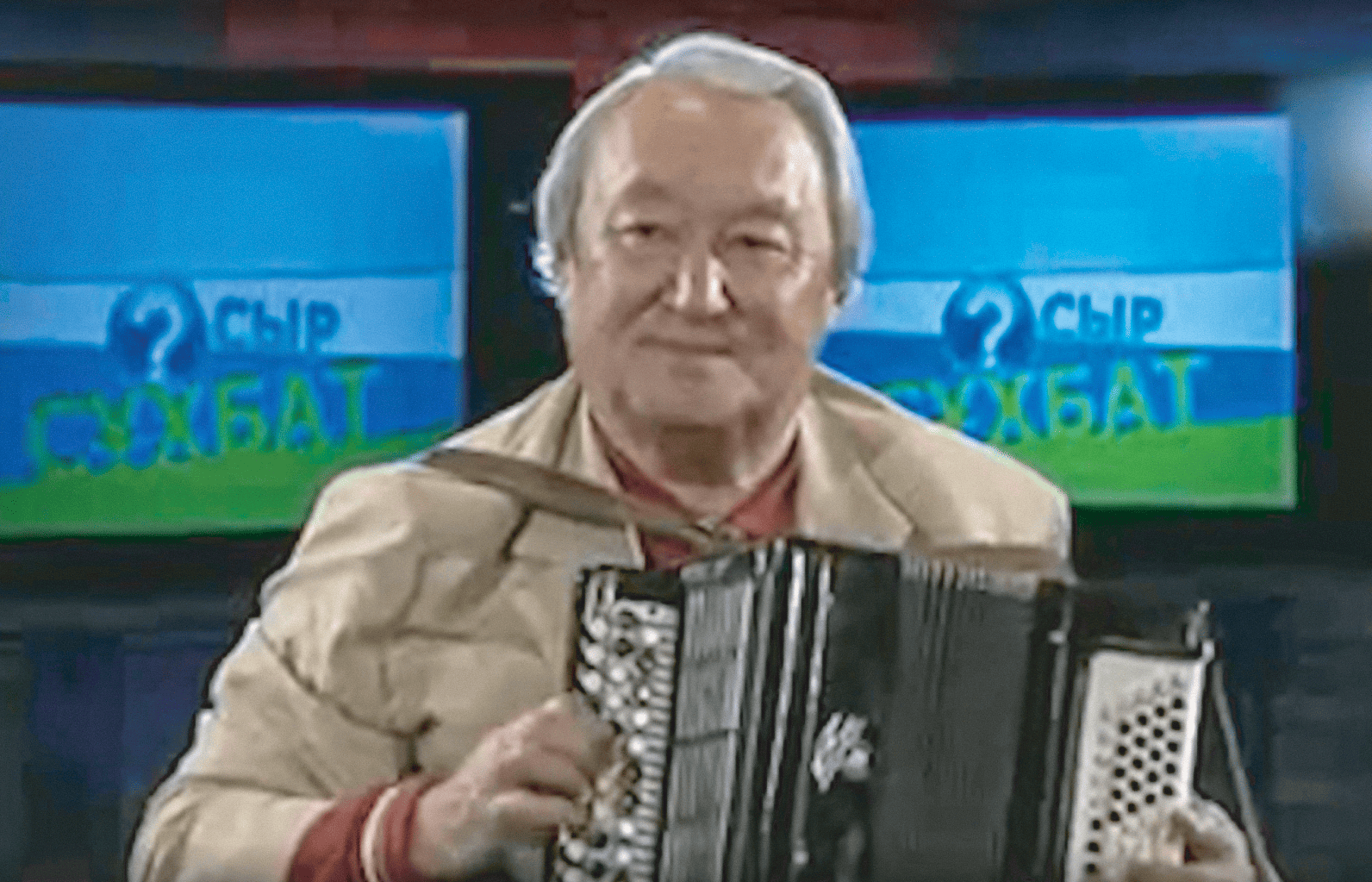
Among the highlights of his public engagements was the symbolic march of the Adilet and Ak Zhol parties on the first day of the pre-election campaign for the Majilis of Parliament. Making a grand entrance, he rode a white horse, accompanied by fellow riders, capturing public attention and reinforcing the significance of the event. At university New Year's Eve celebrations, he often embraced a spirit of playfulness, donning elaborate historical costumes and disguising himself beyond easy recognition. Once his identity was discovered, he would take the stage to perform songs for his colleagues, adding to the festive atmosphere. Beyond his professional and public life, Maqsut Narikbayev was deeply passionate about sports. He actively practiced taekwondo, enjoyed scuba diving, and even undertook a parachute jump in support of the First President’s strategic initiatives, aiming to generate public interest in key national priorities. Known for his bold initiatives and unconventional approach, he exuded confidence and charisma—qualities that made him a natural leader and an inspiring figure.
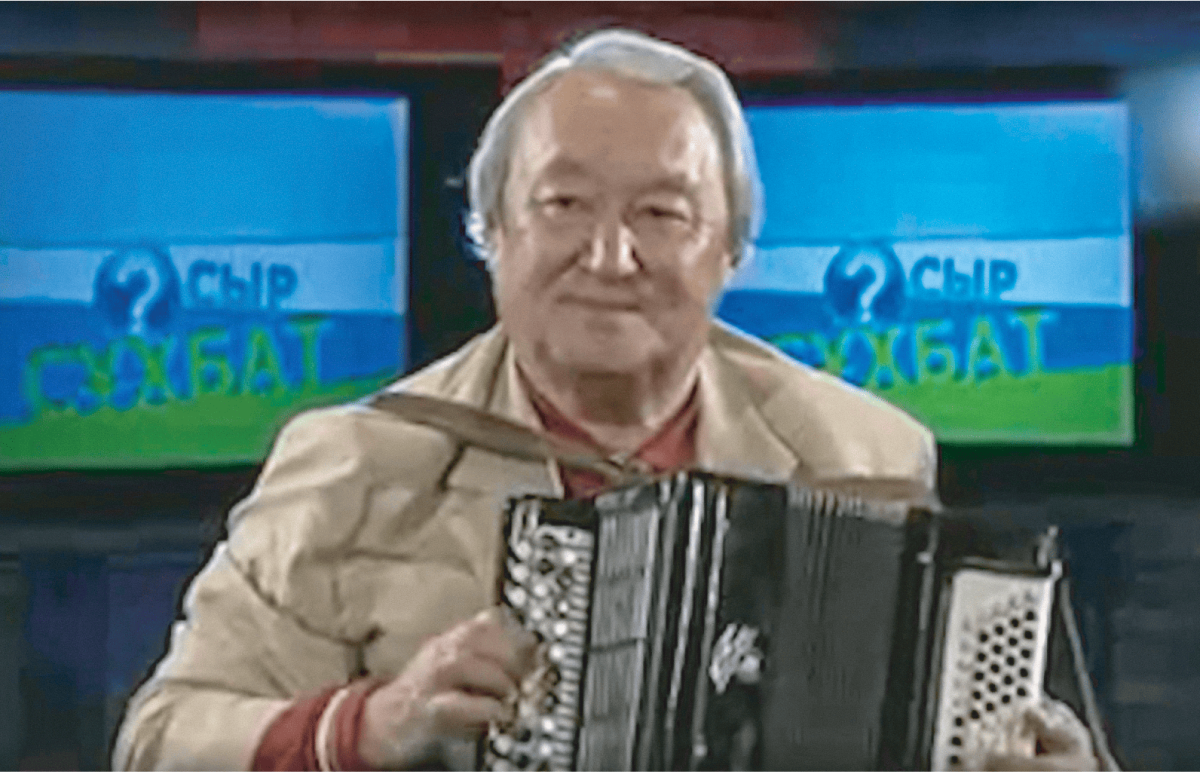
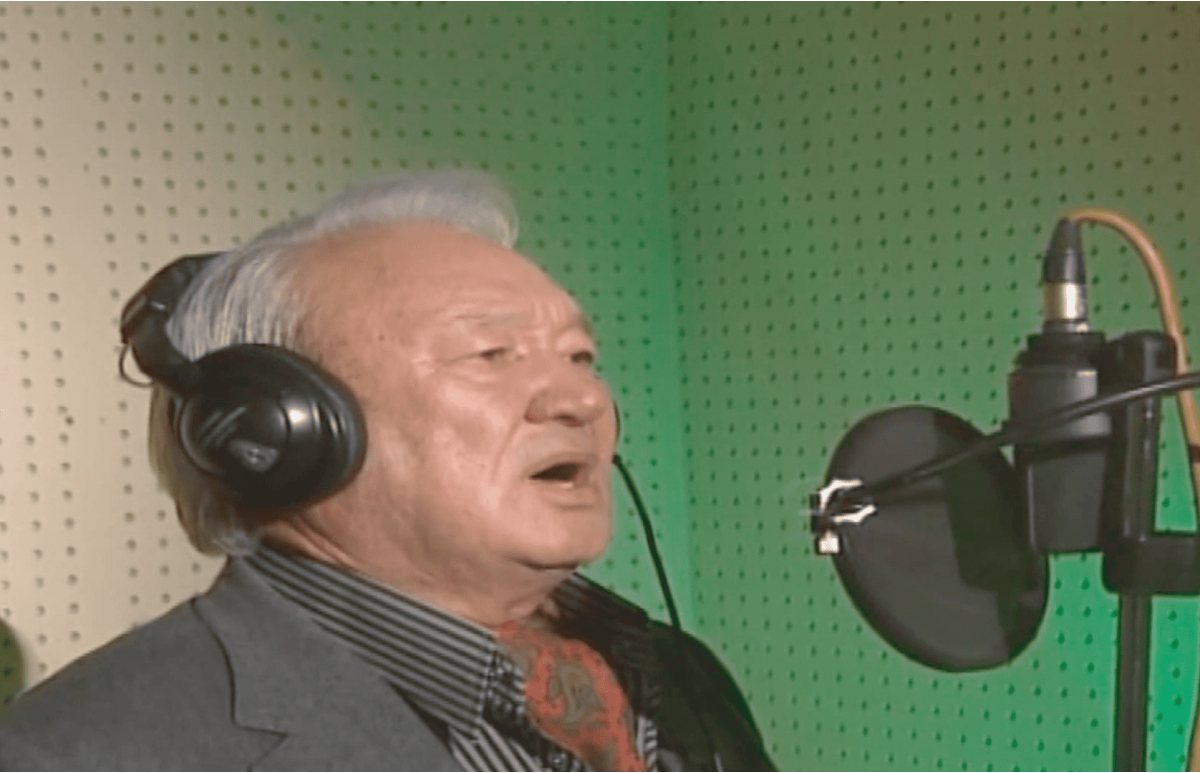

Maqsut Narikbayev actively supported the promotion of martial arts and practiced whenever possible, including karate.
During the global coronavirus pandemic—marked by widespread quarantines and a significant loss of life in many countries—the significance of Maqsut Narikbayev’s final initiatives became even more apparent. Following his treatment in Mexico for an incurable illness, he dedicated himself to bringing a renowned Mexican doctor to Kazakhstan, facilitating meetings with representatives of the Ministry of Healthcare, and ensuring the translation and publication of the doctor’s books in the country. All of these efforts were driven by his desire to support those in need. And perhaps, in doing so, he truly made a difference in someone’s life.
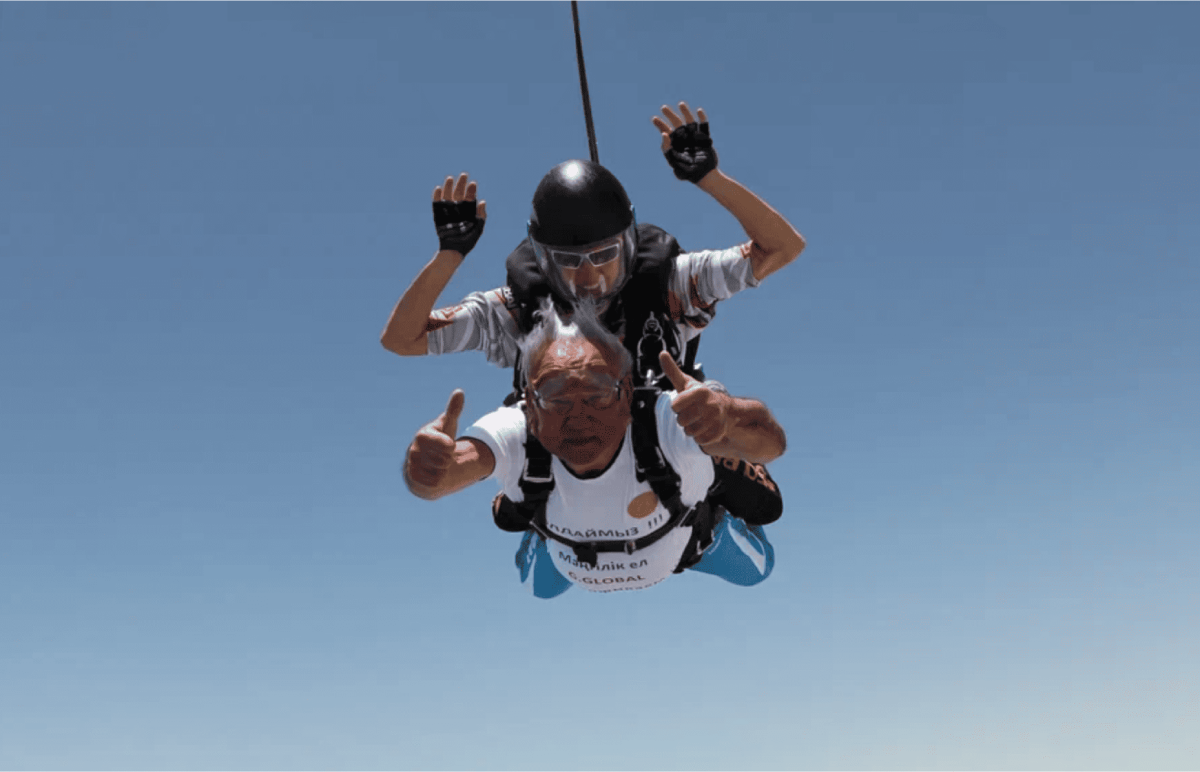
As a true Almaty native, he had a deep love for mountain skiing and encouraged his grandchildren to embrace this exhilarating sport. The thrill of a rapid descent and the wind whistling in his ears filled him with energy and confidence. Upholding a cherished tradition, he greeted the university staff every New Year's Eve while standing on skis.
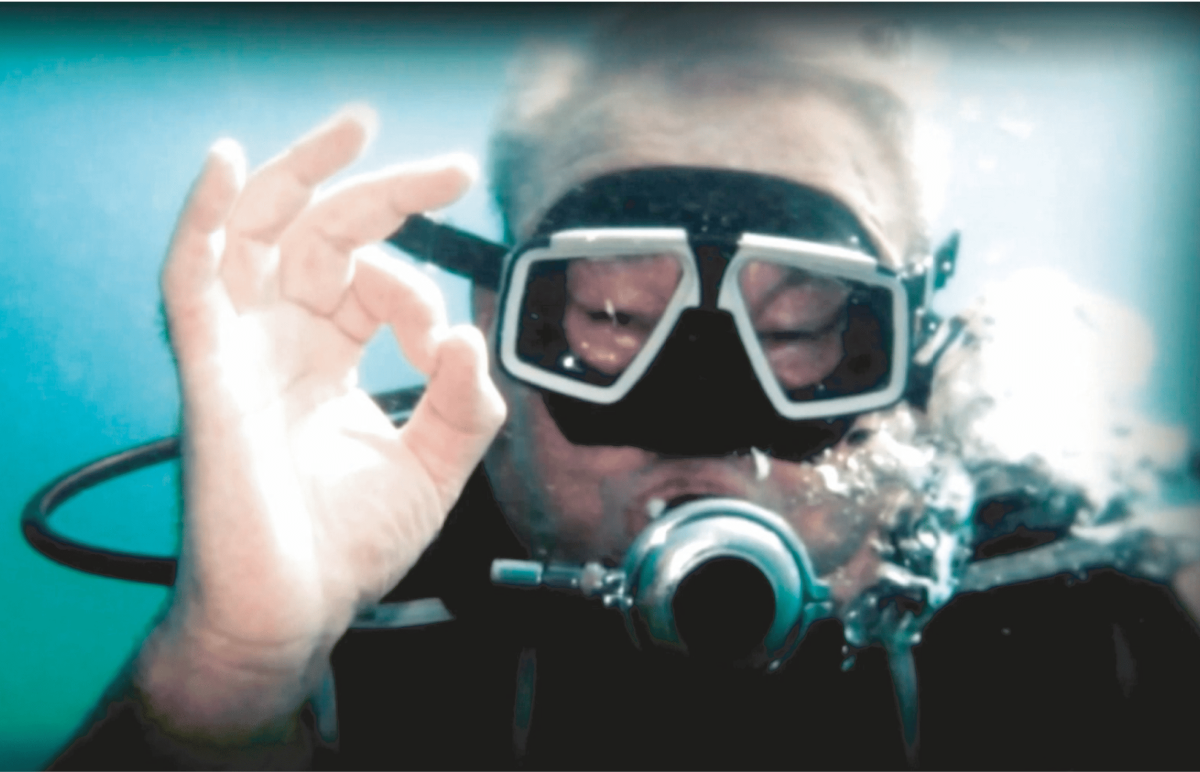


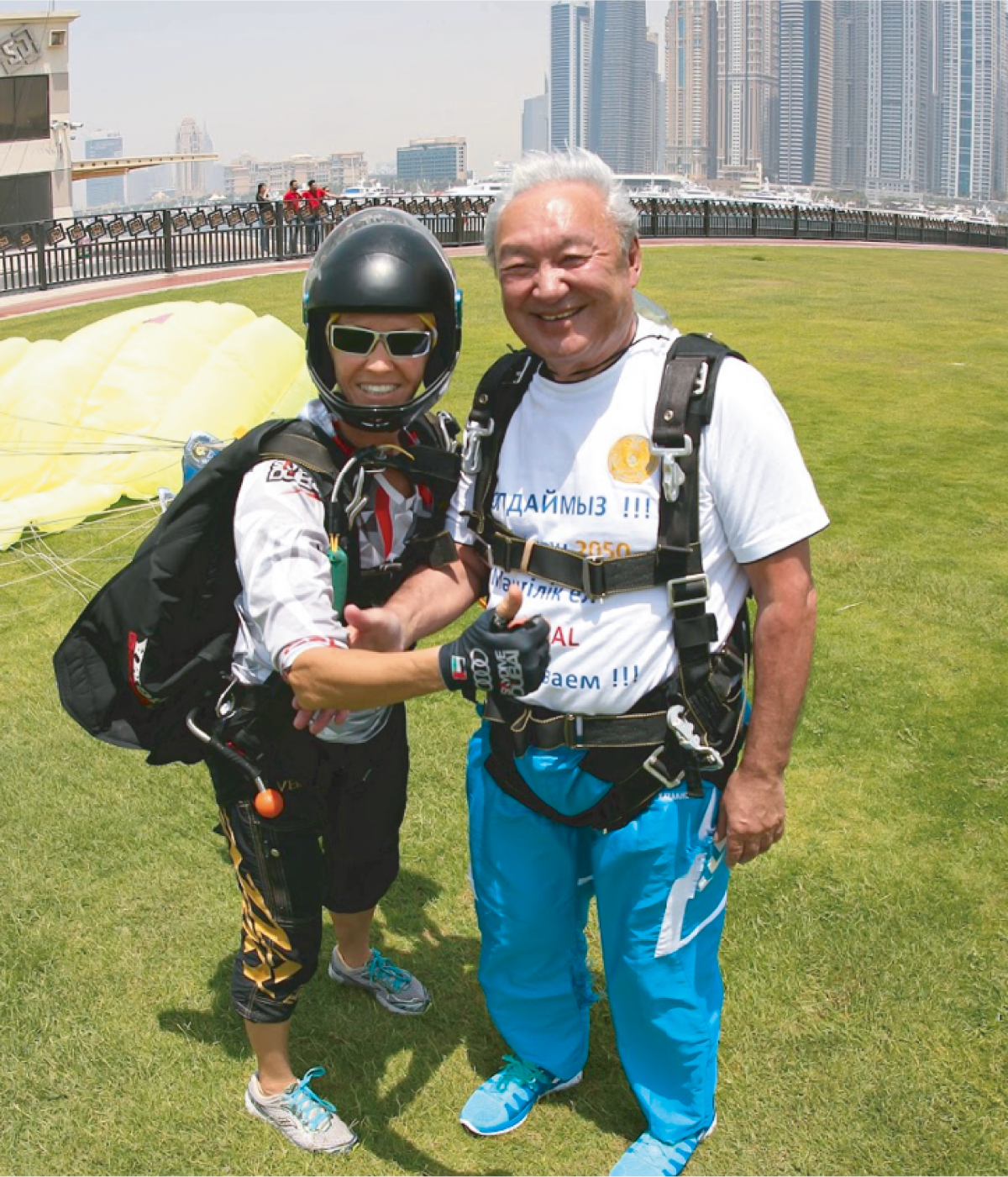
Maqsut Narikbayev actively supported the promotion of martial arts and practiced whenever possible, including karate.
During the global coronavirus pandemic—marked by widespread quarantines and a significant loss of life in many countries—the significance of Maqsut Narikbayev’s final initiatives became even more apparent. Following his treatment in Mexico for an incurable illness, he dedicated himself to bringing a renowned Mexican doctor to Kazakhstan, facilitating meetings with representatives of the Ministry of Healthcare, and ensuring the translation and publication of the doctor’s books in the country. All of these efforts were driven by his desire to support those in need. And perhaps, in doing so, he truly made a difference in someone’s life.
Certainly, many lawyers contributed to the team of Kazakhstan’s First President. However, Maqsut Narikbayev’s role was particularly noteworthy.
Following the adoption of the new Constitution, the role of the Prosecutor's Office underwent significant transformation. Under Narikbayev’s leadership, a reform was initiated that redefined its functions. Investigative responsibilities were transferred to a newly established state body—the State Investigation Committee (SIC). Additionally, the structure of the Prosecutor General’s Office was reorganized to enhance oversight of citizens’ rights and freedoms, ensure the legality of operational and investigative activities, and improve administrative proceedings. The management structure of regional prosecutor’s offices was also revised, reallocating personnel to municipal and district divisions for more efficient governance.
A key aspect of these reforms was strengthening the office’s response to juvenile delinquency. To address this, a specialized unit for juvenile affairs was re-established, ensuring a more targeted and effective approach.
Under Maqsut Narikbayev’s vision, the Prosecutor’s Office evolved beyond its traditional role as a public prosecutor and defender of state interests. It became a guardian of the law, actively protecting the rights and freedoms of individuals and legal entities while also supervising law enforcement. This shift required a fundamental rethinking of legal principles, fostering a new legal culture and mentality not only among Prosecutor’s Office employees but also across all participants in the legal system.
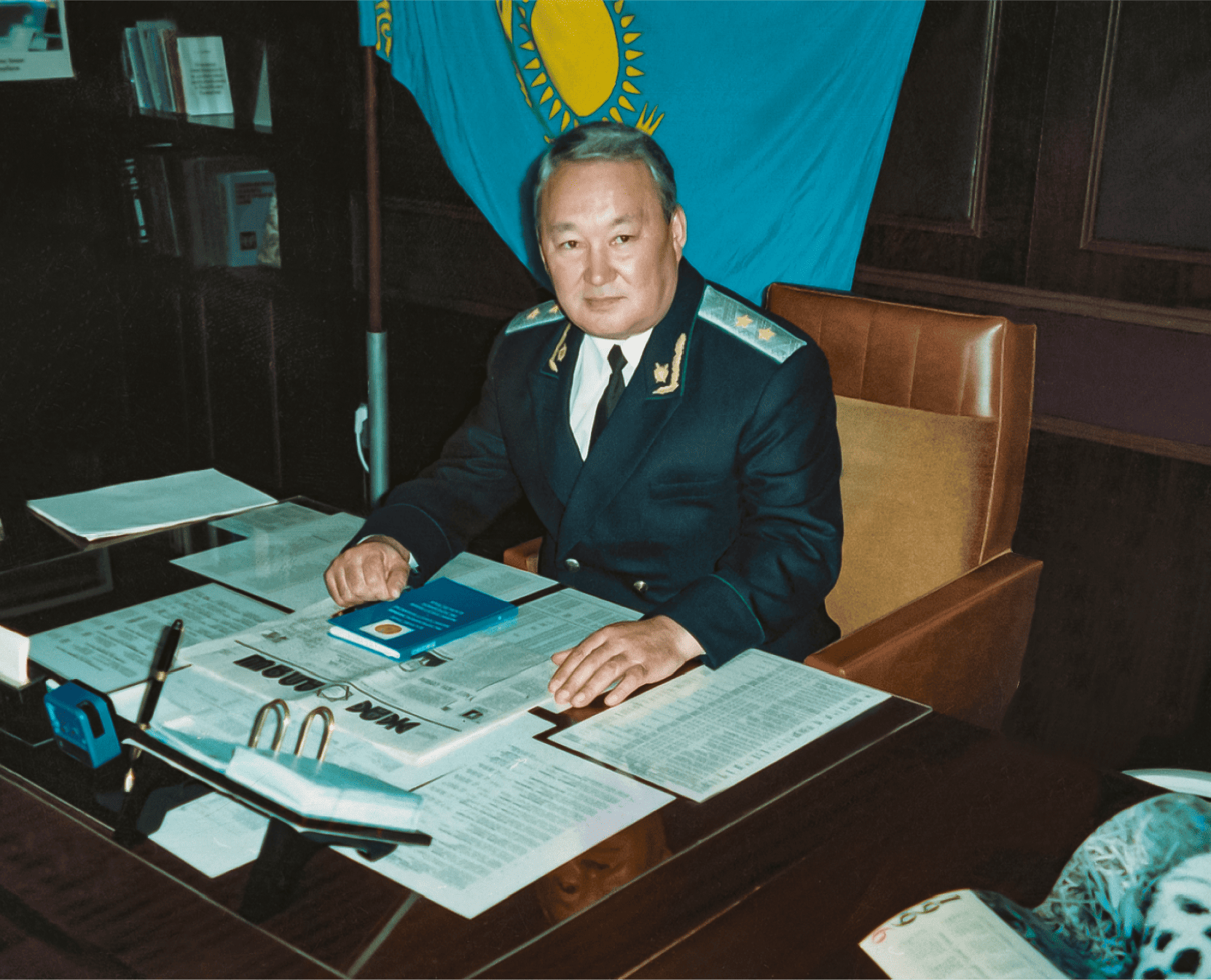
A key aspect of these reforms was strengthening the office’s response to juvenile delinquency. To address this, a specialized unit for juvenile affairs was re-established, ensuring a more targeted and effective approach.
Under Maqsut Narikbayev’s vision, the Prosecutor’s Office evolved beyond its traditional role as a public prosecutor and defender of state interests. It became a guardian of the law, actively protecting the rights and freedoms of individuals and legal entities while also supervising law enforcement. This shift required a fundamental rethinking of legal principles, fostering a new legal culture and mentality not only among Prosecutor’s Office employees but also across all participants in the legal system.
A strong advocate for judicial reform, Maqsut Narikbayev supported the introduction of the Institute of Peace Magistrates in Kazakhstan. He believed that the nation could draw upon its historical traditions, particularly the well-known biys courts. Biys were respected figures elected by local communities to adjudicate minor, non-threatening disputes, focusing on reconciliation rather than punitive measures. This concept remains relevant today, as modern judicial proceedings increasingly incorporate conciliatory procedures to resolve disputes efficiently while still allowing for legal recourse when necessary.
Narikbayev’s commitment to preserving and honouring Kazakhstan’s legal heritage was evident in his initiative to create a monument dedicated to the three renowned biys of the 18th century—Tole biy, Kazybek biy, and Ayteke biy. This monument now stands near the first building of the Supreme Court in the capital. Further extending this legacy, he proposed the establishment of the Three Biys Scholarship at KAZGUU University and dedicated a classroom in their honour to inspire future generations of legal professionals.
During his tenure as Chairman of the Supreme Court of the Republic, Maqsut Narikbayev played a crucial role in aligning Kazakhstan’s judicial system with universally recognized principles of international law. Under his leadership, legislative reforms reinforced judicial independence while ensuring a balanced system of accountability.
Maqsut Narikbayev consistently emphasized that alongside judicial independence, it was equally vital to uphold strict accountability, ensuring that judges remained answerable to both the state and society in their pursuit of justice.
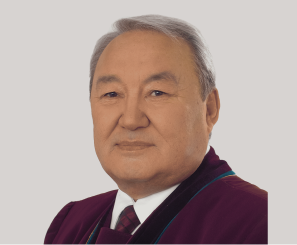
During his tenure, several critical judicial reforms were addressed at the legislative level, including the introduction of jury trials, the establishment of specialized courts for juvenile, tax, and other legal matters, and enhanced protections for judges, witnesses, and victims. Additionally, judicial control was strengthened, and the administration of justice was clearly separated from judicial administration, ensuring a more transparent and effective legal system.
In recognition of Kazakhstan’s rich legal heritage, Narikbayev initiated and actively contributed to the creation of a monument honouring the three renowned biys of the 18th century—Tole biy, Kazybek biy, and Ayteke biy. This monument now stands near the first building of the Supreme Court in the capital. Further extending his commitment to preserving their legacy, he proposed the establishment of the Three Biys Scholarship at KAZGUU University and dedicated a classroom in their honour, inspiring future generations of legal professionals to uphold the principles of justice and reconciliation.
Maqsut Narikbayev consistently emphasized that judicial independence must be balanced with strict accountability. He believed that alongside safeguarding judges' autonomy, it was equally essential to ensure their responsibility to both the state and society, fostering a legal system built on fairness, integrity, and public trust.
This was evident in numerous press conferences, briefings, congresses, and meetings of the Political Council, as well as in the activities of the interparty council, which played a key role during the global economic crisis. Maqsut Narikbayev was known for his pragmatism, critical thinking, and forward-looking approach. He rejected rigid dogmas, actively listened to the opinions of his colleagues, and encouraged open discussions before making decisions or proposing new initiatives. While Maqsut Narikbayev supported the strategic direction set by the First President, he was often critical of the government's implementation methods and tactical decisions. He openly voiced concerns about ineffective or half-measured policies suggested during challenging times and advocated for adjustments in legal policy and legislative improvements. His proposals focused on refining the structure and powers of state institutions, particularly in response to economic crises. Although he acknowledged the country’s achievements, Narikbayev remained keenly aware of its persistent challenges. He worked tirelessly to address these issues, offering innovative ideas to accelerate socio-political development and enhance the legal system, ensuring its adaptability to the nation’s evolving needs.
Maqsut Narikbayev was deeply committed to advancing political initiatives and actively worked to implement meaningful reforms. As Chairman of the party, he played a key role in the National Commission on Democratization and Civil Society under the President of the Republic of Kazakhstan, where he advocated for strengthening justice and the rule of law in the country. He also participated in the State Commission for the Development and Specification of the Program of Democratic Reforms, contributing to discussions on legislative improvements. One of the party’s most significant proposals—the draft law “On Trial by Jury”—sparked considerable public interest and debate. Narikbayev also championed the idea of uniting various political parties through consensus, a vision that later materialized in collaborations with the Ak Zhol and Rukhaniyat parties, as well as in fostering political relations with Fair Russia. Additionally, at the IV Congress, the Adilet party introduced its strategic program, “Seven Steps to Overcome Corruption,” outlining concrete measures to enhance transparency and accountability in Kazakhstan.
Many of the party’s ideas and initiatives resonated deeply with society, reflecting the widespread public support for its vision. Even today, Maqsut Narikbayev’s political foresight and wisdom continue to shape Kazakhstan’s political landscape and societal development. His unwavering commitment to serving the people—driven by a desire to be useful, make a difference, and apply his knowledge and experience—defined both his political career and personal philosophy.
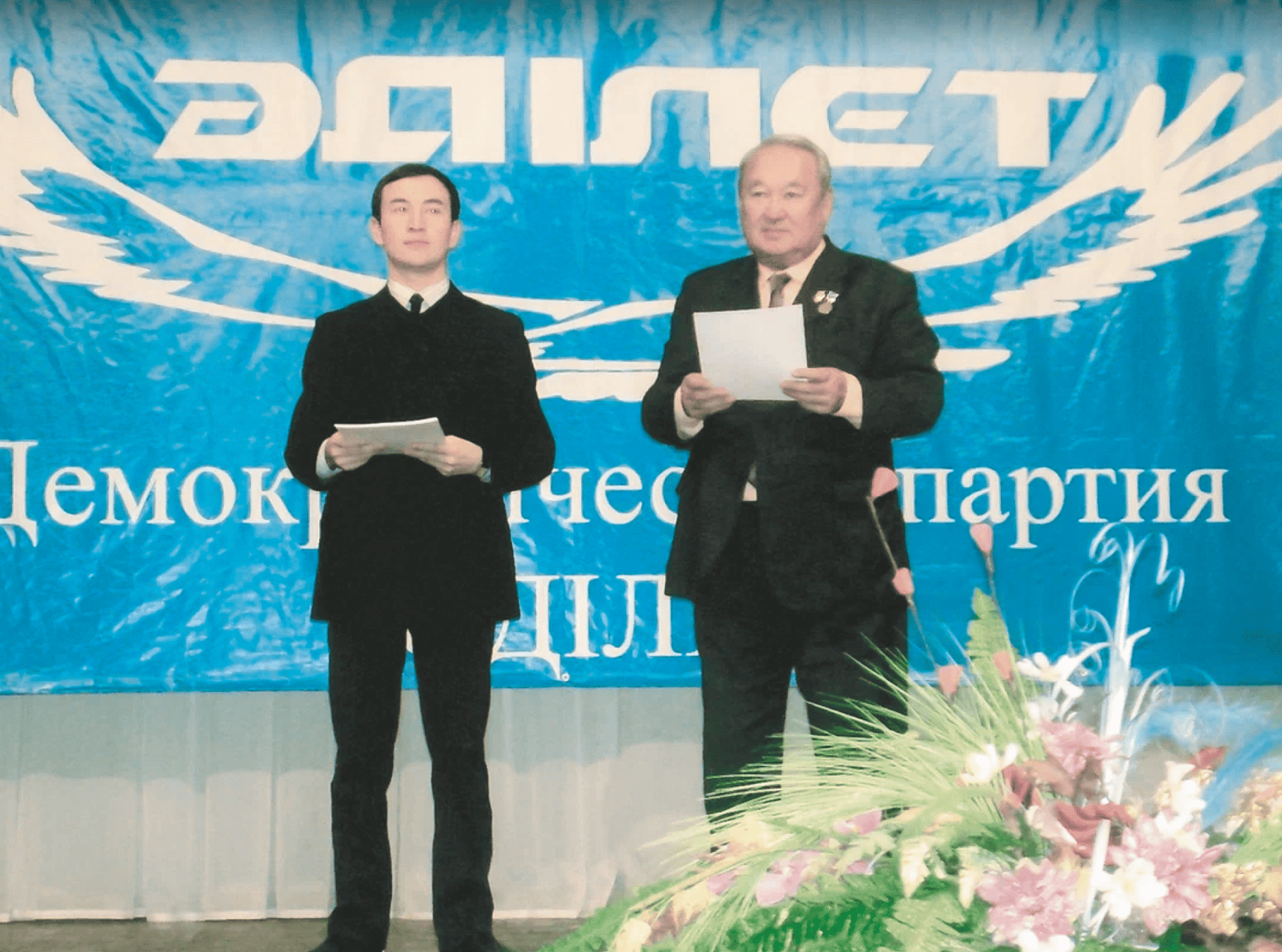
Maqsut Narikbayev was deeply committed to advancing political initiatives and actively worked to implement meaningful reforms. As Chairman of the party, he played a key role in the National Commission on Democratization and Civil Society under the President of the Republic of Kazakhstan, where he advocated for strengthening justice and the rule of law in the country. He also participated in the State Commission for the Development and Specification of the Program of Democratic Reforms, contributing to discussions on legislative improvements. One of the party’s most significant proposals—the draft law “On Trial by Jury”—sparked considerable public interest and debate. Narikbayev also championed the idea of uniting various political parties through consensus, a vision that later materialized in collaborations with the Ak Zhol and Rukhaniyat parties, as well as in fostering political relations with Fair Russia. Additionally, at the IV Congress, the Adilet party introduced its strategic program, “Seven Steps to Overcome Corruption,” outlining concrete measures to enhance transparency and accountability in Kazakhstan.
Beyond his academic contributions, Narikbayev played a pivotal role in mentoring future legal scholars. He supervised the training of six doctors and ten candidates of law sciences, fostering a new generation of legal professionals. Additionally, he served as Chairman of the Inter-University Academic and Methodological Unit on Jurisprudence, where he played a key role in advancing legal education and curriculum development.
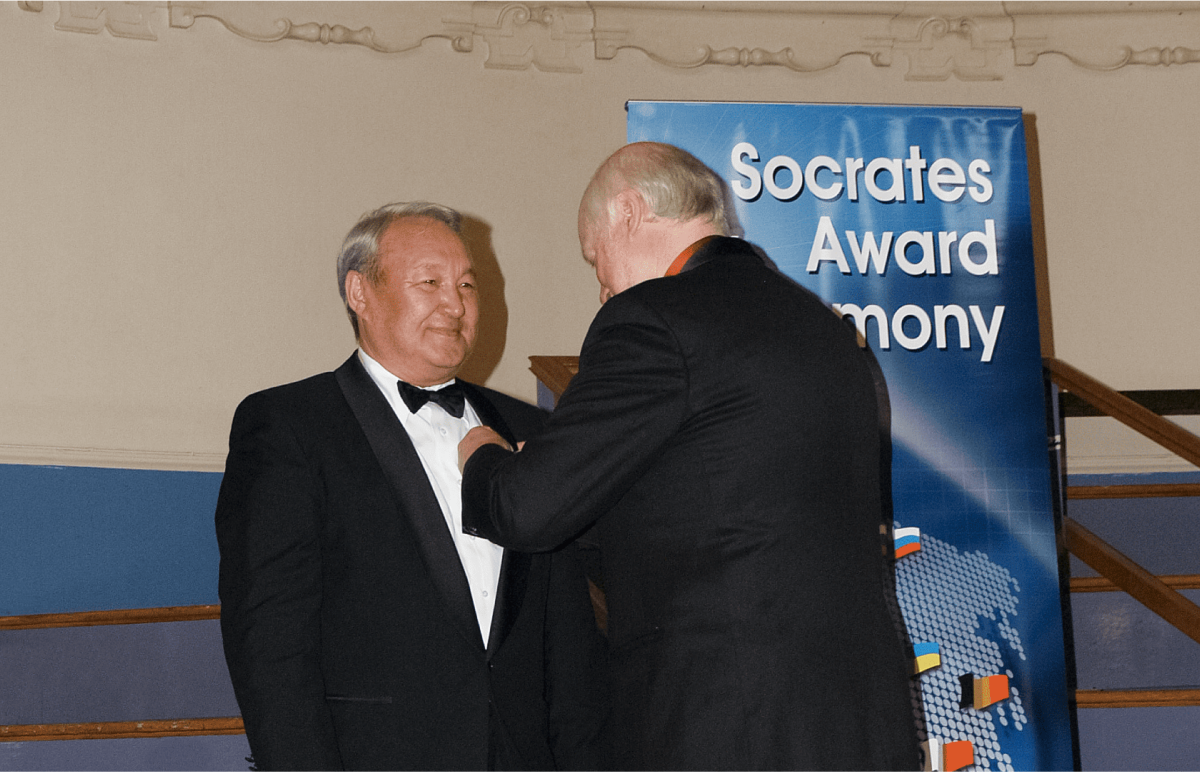
In his scientific works, Maqsut Narikbayev devoted considerable attention to the theoretical foundations of legal protections essential for the development of a stable market economy in Kazakhstan. He astutely highlighted the gaps in legislation, particularly the lack of clear regulations ensuring strong safeguards for entrepreneurial activity against arbitrariness and abuses by officials at various levels. His research contributed to shaping policies that promote legal certainty and fairness in economic relations.
Beyond his academic contributions, Narikbayev played a pivotal role in mentoring future legal scholars. He supervised the training of six doctors and ten candidates of law sciences, fostering a new generation of legal professionals. Additionally, he served as Chairman of the Inter-University Educational and Methodological Section on Jurisprudence, where he played a key role in advancing legal education and curriculum development.

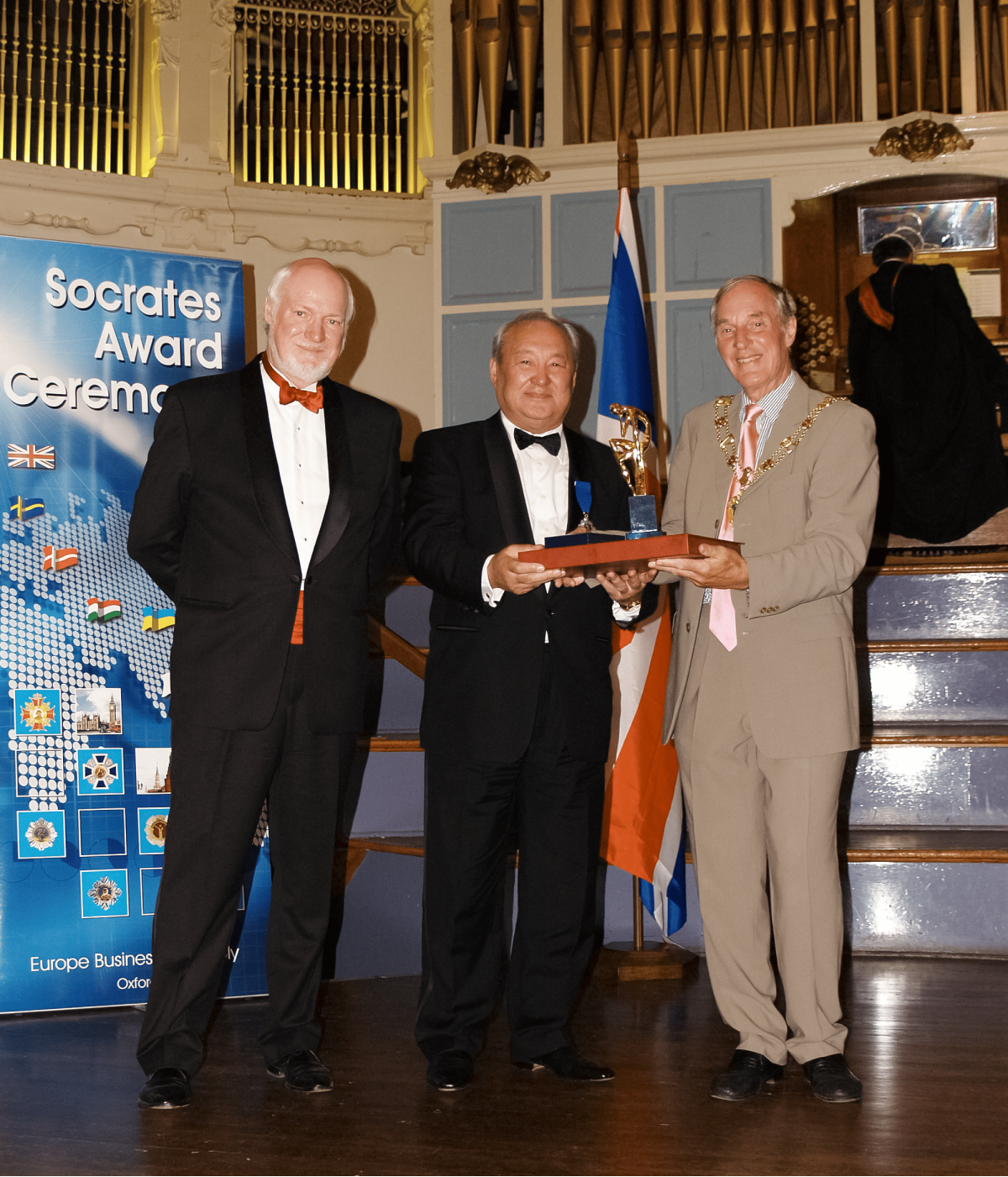
Narikbayev M. Pravovaja ohrana detstva. — Alma-Ata: Mektep, 1984. — 64 p.
Narikbayev M. Ugolovno-pravovy`e i kriminologicheskie aspekty` bor`by` s prestupleniyami nesovershennoletnix: Avtoref. dis. kand. yurid. nauk. — Almaty`, 1996.
Narikbayev M. Ugolovno-pravovaya oxrana detstva v Respublike Kazaxstan: Avtoref. dis. d-ra yurid. nauk. — M., 1997. — 53 p.
Narikbayev M. Doroga k pravosudiyu: (Zapechatl. mgnoveniya). — Almaty`: Elimaj kontakt, 1997. — 231 p.
Narikbayev M., Udartsev S. Vy`sshee yuridicheskoe obrazovanie v Kazaxstane v XXI veke: reformy`, problemy` i perspektivy`. Astana: Foliant, 2014 – 336 p.
Narikbayev M. Ūlt mäselesınde şamadan tys qyzuqandylyqtan görı, baiypty qadamnan ūtarymyz köp = Sozidaya naciyu, ob``edinyat`, a ne raz``edinyat` / M. Narikbaev ; Demokraticheskaya partiya "Ädılet". - Astana, 2010. - 23 p.
Narikbayev M. Nash put` spravedlivosti: obshhestvenno-politicheskaya literatura. - Astana, 2010. - 140 p.
Narikbayev M. Kazaxstan: gody` reform. Dialogi i razmy`shleniya KazGYuU. - Astana: CzBO i MI, 2010. - 544 p.
Narikbayev M., Ismailov O. Trudny`e stupeni schast`ya: Kniga dialogov /. - Almaty`, 2006. - 576 p.
Narikbayev M. , Kravchenko A., Sulejmenova U. Praktika rassmotreniya xozyajstvenny`x sporov sudebnoj kollegiej po xozyajstvenny`m delam Verxovnogo Suda Respubliki Kazaxstan (1998 god)/ M. - Almaty` : Zhetі zharғy`, 1999. - 128 p.
Narikbayev M. Sudebno-pravovaya reforma i politicheskaya modernizaciya v Kazaxstane: realii i perspektivy` : uchebnoe posobie / KazGUU. - Astana, 2008.
Narikbayev M. Mama-moyo sokrovishhe : sbornik vospominanij. - Karaganda : Forma plyus, 2016. - 156 p.
Narikbayev M. O prave, gosudarstve i politike: aforizmy` i vy`skazy`vaniya./sost. S. F. Udartsev. - Astana : TOO " CzBO i MI", 2011. - 77 p.
Maqsut Narikbayev laid the foundation for transformative changes that propelled the university toward integration into the global educational system. His leadership and vision were instrumental in KAZGUU becoming the first university in Kazakhstan to achieve FIBAA accreditation without any conditions—an accomplishment that underscores the institution’s commitment to academic excellence and international standards.
FIBAA, one of Europe’s leading accreditation agencies, evaluates the quality of higher and supplementary education programs in Economics, Law, Social Sciences, and Humanities. It collaborates with key stakeholders in the educational sector, including the academic community, employers, state educational authorities, and international accreditation agencies across Europe and the United States.
In recognition of its dedication to educational excellence and humanitarian goals, KAZGUU was honored with the prestigious International Sócrates Award, a testament to its outstanding achievements in higher education.
Under Maqsut Narikbayev’s leadership, KAZGUU forged strong academic partnerships with esteemed institutions such as Utrecht University (Netherlands), the University of Cambridge (UK), and the Catholic University of the Sacred Heart of Milan (Italy).
His professionalism and exceptional organizational skills played a pivotal role in transforming KAZGUU—now MNU—into a leading institution in Kazakhstan and the region, positioning it with strong potential to evolve into a world-class university.
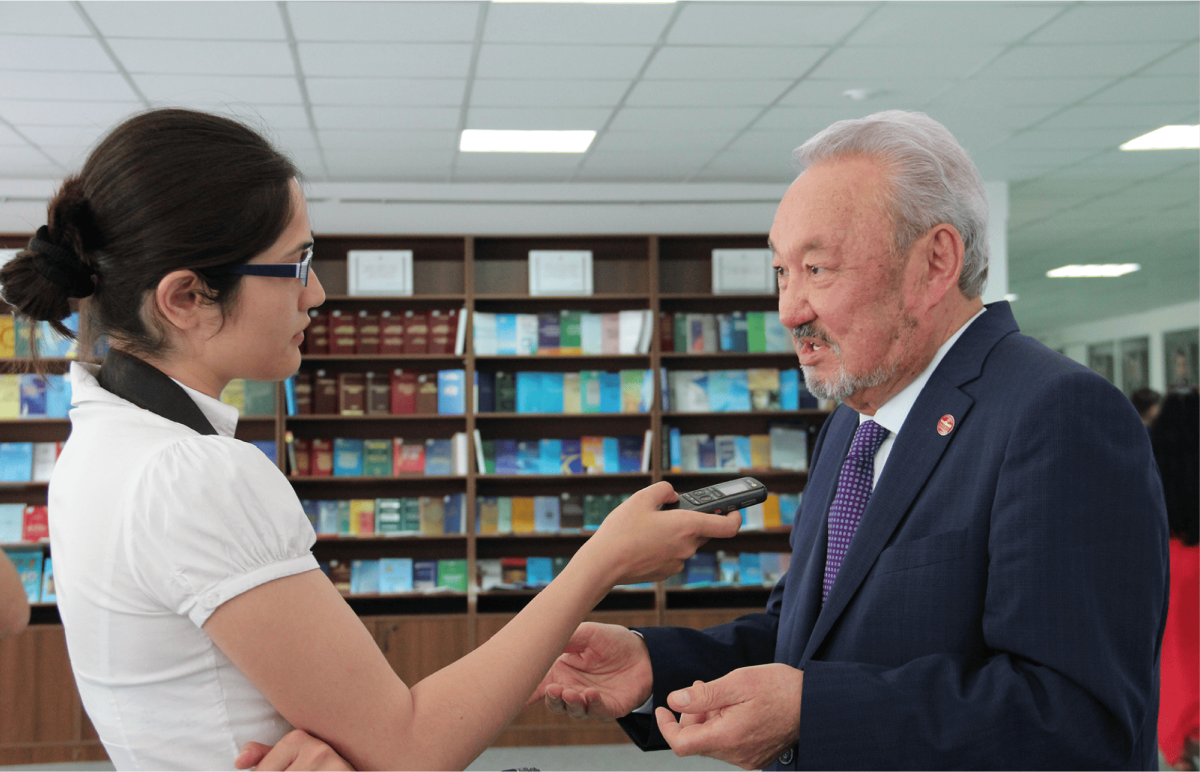
FIBAA, one of Europe’s leading accreditation agencies, evaluates the quality of higher and supplementary education programs in Economics, Law, Social Sciences, and Humanities. It collaborates with key stakeholders in the educational sector, including the academic community, employers, state educational authorities, and international accreditation agencies across Europe and the United States.
In recognition of its dedication to educational excellence and humanitarian goals, KAZGUU was honored with the prestigious International Sócrates Award, a testament to its outstanding achievements in higher education.
Under Maqsut Narikbayev’s leadership, KAZGUU forged strong academic partnerships with esteemed institutions such as Utrecht University (Netherlands), the University of Cambridge (UK), and the Catholic University of the Sacred Heart of Milan (Italy). His professionalism and exceptional organizational skills played a pivotal role in transforming KAZGUU—now MNU—into a leading institution in Kazakhstan and the region, positioning it with strong potential to evolve into a world-class university.
On July 2, 2008, the official presentation of the new educational building of the Kazakh Humanities and Law University (KAZGUU) took place, with the participation of the President of Kazakhstan, Nursultan Nazarbayev.
The ceremony was attended by prominent figures, including Head of the Presidential Administration Kairat Kelimbetov, Minister of Education and Science Zhanseit Tuimebayev, Akim of Astana Imangali Tasmagambetov, and President of KAZGUU Maqsut Narikbayev.
During the event, the Head of State toured the university, visiting the museum, the Information, and Book Trade Centre of St. Petersburg State University Publishing House, and several lecture halls. Nursultan Nazarbayev also explored the Centre of Islamic Economics and Law and the Centre of European Law, highlighting the institution’s commitment to academic diversity and global perspectives.

Oraz Mukatai, Head of the university building construction and an honoured builder of the Republic of Kazakhstan, recalls:
“For many years, after travelling extensively around the world, Maqsut Narikbayev pursued a vision of establishing a purpose-built educational institution. His dream was to create a university that met modern educational standards—one that provided an inspiring and productive environment for faculty, engaged students in dynamic learning, and stood as a prestigious place to study and work.”



The university’s new building is a grand and magnificent structure, distinguished by its impressive colonnade, elegant balconies, and harmonious architectural design. Its refined colour scheme further enhances its aesthetic appeal, making it a landmark of academic excellence.
On July 2, 2008, the official presentation of the new educational building of the Kazakh Humanities and Law University (KAZGUU) took place, with the participation of the President of Kazakhstan, Nursultan Nazarbayev.
The ceremony was attended by prominent figures, including Head of the Presidential Administration Kairat Kelimbetov, Minister of Education and Science Zhanseit Tuimebayev, Akim of Astana Imangali Tasmagambetov, and President of KAZGUU Maqsut Narikbayev.
During the event, the Head of State toured the university, visiting the museum, the Information, and Book Trade Centre of St. Petersburg State University Publishing House, and several lecture halls. Nursultan Nazarbayev also explored the Centre of Islamic Economics and Law and the Centre of European Law, highlighting the institution’s commitment to academic diversity and global perspectives.

+7 - (700) - 170 - 30 - 30





